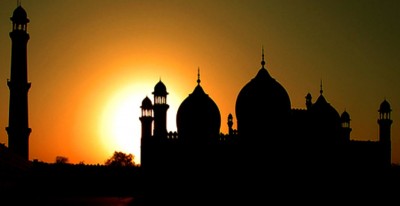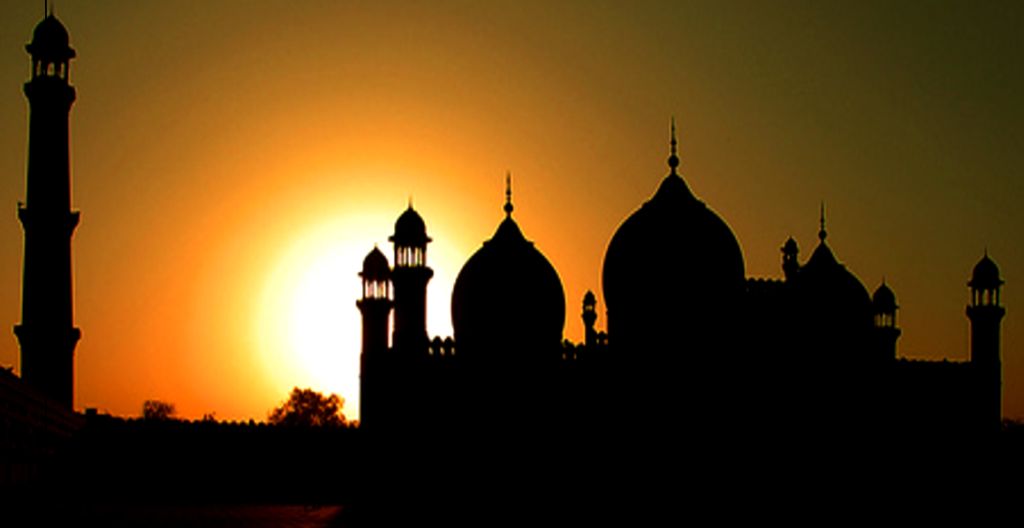In its second meet of the year, the Central Working Committee of All India Muslim Majlis-e Mushawarat (AIMMM) has discussed national and international issues including Muzaffarnagar riots, Modi’s anointment as PM candidate, Islamic banking, Rihai Manch, and Syrian ambassador’s claim. AIMMM says Muzaffarnagar riots mirror the exasperation of the communal forces.
Press Release:
New Delhi, 19 September, 2013: The Markazi Majlis-e Aamla (Central Working Committee) of the All India Muslim Majlis-e Mushawarat (AIMMM), umbrella body of Indian Muslim organisations and eminent personalities, held its second meeting of the year 2013 here today at its central office. The meeting was chaired by the AIMMM National President Dr Zafarul-Islam Khan and attended by the following members: Janab Ejaz Ahmed Aslam, Mr. Ahmad Rashid Shervani and Dr. Arshi Khan (general secretaries), Mr. Syed Shahabuddin, Maulana Syed Jalalauddin Umari, Dr Ubaid Iqbal Asim, Mr. S. M. Y. Nadeem, Mr. Mujtaba Farooq, Mr. Abdul Khaliq, Prof. S.M. Yahya, Prof. Humayun Murad, Prof. Akhtarul Wasey, Hakim Syed Zillur Rahman, Janab Nusrat Ali and Dr. S.Q.R. Ilyas.
 The meeting offered condolences to the millat and families of prominent leaders of the community who passed away recently and prayed for their souls, especially Bashiruddin Babukhan, a member of MMM, a former vice president of AIMMM and a former A.P. minister who died in Huderabad after a prolonged illness on 15 September; C K Aaisha of Kerala, Brand Ambassador of World Literacy Mission who died at Conoor (Kerala) on 5 April; Prof Ziaul Haq No’mani, former Principal of Darbhanga College and Mithila University’s Controller of Examinations, who died in Laharya Sarai (Bihar) on 18 April; Maulana Zainul Abideen Azmi, head of Jamia Mazahirul Uloom’s Hadees Department, who died in Mau in the last week of April; Asghar Ali Engineer, distinguished Islamic scholar, reformist and progressive Bohra leader, social reformer and intellectual, who died in Mumbai on 14 May at the age of 74 years; Maulana Aseeruddin Salfi, head of Haryana state’s Jamiat Ahl-e Hadees, who died on 11 May; Prof Muhammad Taiyyab, former Dean of AMU’s Faculty of Unani Medicine, who died in Aligarh on 6 June at the age of 82 years; Ustad Zia Fariduddin Dagar, Dhrupad maestro, who died in Mumbai on 9 May at the age of 80 years.
The meeting offered condolences to the millat and families of prominent leaders of the community who passed away recently and prayed for their souls, especially Bashiruddin Babukhan, a member of MMM, a former vice president of AIMMM and a former A.P. minister who died in Huderabad after a prolonged illness on 15 September; C K Aaisha of Kerala, Brand Ambassador of World Literacy Mission who died at Conoor (Kerala) on 5 April; Prof Ziaul Haq No’mani, former Principal of Darbhanga College and Mithila University’s Controller of Examinations, who died in Laharya Sarai (Bihar) on 18 April; Maulana Zainul Abideen Azmi, head of Jamia Mazahirul Uloom’s Hadees Department, who died in Mau in the last week of April; Asghar Ali Engineer, distinguished Islamic scholar, reformist and progressive Bohra leader, social reformer and intellectual, who died in Mumbai on 14 May at the age of 74 years; Maulana Aseeruddin Salfi, head of Haryana state’s Jamiat Ahl-e Hadees, who died on 11 May; Prof Muhammad Taiyyab, former Dean of AMU’s Faculty of Unani Medicine, who died in Aligarh on 6 June at the age of 82 years; Ustad Zia Fariduddin Dagar, Dhrupad maestro, who died in Mumbai on 9 May at the age of 80 years.
Prof Fazlur Rahman Ginnauri, a noted Islamic scholar and former Dean of AMU’s Faculty of Theology, who died in Karachi during a visit to Pakistan last June; Dr Mahfooz Ahmad, economist and former treasurer of AMU, who died in Aligarh on 23 June at the age of 78 years; Shamsul Hoda, social worker and editor of Makhzan magazine, who was found murdered in his office in Bangalore on 4 July; Hajjin Ameer Jahan, mother of UP’s cabinet minister Azam Khan, who died at Rampur on 9 July at the age of 95 years; Maulana Mazahirullah Khan Wajihi, a well-known religious scholar of Rampur and Imam of the city’s Jama Masjid, who died after a road accident near Jaipur on 6 July; Khurshid Alam Khan, former minister in Indira Gandhi and Rajiv Gandhi cabinets and father of Union foreign minister Salman Khurshid and also former governor of Karnataka, who died in Delhi on 20 July at the age of 95 years; Prof Obaid Siddiqi, famous scientist, founder of National Centre for Biological Scientists and National Research Professor of Tata Institute of Fundamental Research, who died in Bangalore on 26 July after he sustained severe head injuries in an accident.
Prof Majeed Muzmar, noted litterateur, researcher and critic of Kashmir University, who died on 26 July; Maulana Abdul Hameed Rahmani, noted religious scholar and President of Delhi’s Maulana Abul Kalam Azad Islamic Awakening Centre, who died on 20 August at the age of 73 years; Dr Farman Fatehpuri, renowned scholar, critic, researcher and linguist of Indo-Pak subcontinent, who died in Karachi on 3 August at the age of 87 years; Zafar Futehally, one of India’s best known naturalists, conservationist and ornithologist, who died at Kihim in Maharashtra on 11 August at the age of 93 years; Sakar Khan, renowned Rajasthani folk musician and exponent of melodious bow and string instrument called Kamaicha, who died in Jaisalmer on 10 August; Prof Shah Abdus Salam Farooqi, former Professor of Arabic at Lucknow University and former OSD of Rampur’s Raza Library, who died last August; S. M. Laljan Basha, a former MP and leader Telugu Desam Party, who died in a road accident near Hyderabad on 15 August at the age of 57; Periyar Dasan Dr. Abdullah, a leader of Periyar movement who had embraced Islam In November 2010, who died on 19 August; Dr Syed Abdul Baari “Shabnam Subhani”, noted poet, critic, author and journalist died in Delhi on 1 September and Prof (Dr) Lutfur Rahman, eminent Urdu litterateur, critic, poet and researcher, who died in Bhagalpur in the night of 31 August at the age of 72 years.
The meeting discussed milli, national and organisational matters, especially the political and communal situation including the Muzaffarnagar violence and how to improve inter-community relations and frustrate designs of the communal forces. It also discussed ways to improve the delivery of schemes started by the government after the Sachar report. It also discussed the ongoing campaign in the name of fighting against terror.
Among the resolutions that the meeting discussed and passed includes:
Muzaffarnagar violence
Riots occurring these days all over the country, especially in U.P. and now the “mini Gujarat” in and around Muzaffarnagar district, as we approach the next general elections mirror the exasperation of the communal forces to grab power at any cost. It is the responsibility of the state and central governments to check this menace forcefully and frustrate the designs of the forces which thrive on division and hate. The AIMMM demands that such political parties and such political candidates should be banned from contesting elections forever.
The AIMMM further demands that both the state and central governments show seriousness to offer relief, documentation and legal help to the victims of the Muzaffarnagar violence and to repatriate them to live in their homes and villages in peace and security. To achieve this, the culprits should be punished and permanent police pickets with adequate minority representation should be posted in all vulnerable villages until full normalcy returns, Uprooted people who do not wish to return should be helped to resettle elsewhere as per their choice.
Modi/BJP
AIMMM believes that RSS and BJP’s elevation of Narendra Modi as the prime ministerial candidate in the forthcoming general elections betrays their plan to communalise and polarize the whole Indian polity on the lines achieved by Shri Modi in his home state, Gujarat. Their export of one of the chief architects of the 2000 pogroms and the subsequent planned fake encounters to U.P. bodes ill for future of India as a free and democratic country.
Waqf Bill
The AIMMM lauds the passage of the Waqf Bill with the desired amendments including prohibition to sell waqf properties/ The AIMMM also hopes that the UPA government will show seriousness in the early passage of the Waqf Premises Bill also which is needed to protect the waqf properties and ensure eviction of encroachers. Public waqf properties should be treated at par with other public properties.
Islamic banking
AIMMM welcomes RBI’s permission to Kerala state government to start an investment company based on Islamic Sharia rules. AIMMM hopes that the new governor of RBI will follow up on his earlier recommendation in a report that India should allow Islamic banking like many other countries in the world. AIMMM feels that Islamic or ethical banking, which basically prevents exploitation and speculation, will be a panacea to our economic ills.
Syrian ambassador’s claim
The Syrian ambassador in India, according to the Indian Express (5 Sept. 2013) had claimed that some “Indian Muslims” were fighting with the rebels in his country. AIMMM took notice of this and on same day refuted the allegation and demanded proof from the envoy who later said that he was “misquoted” and that he only said that persons of various nationalities are fighting in Syria. The envoy later sent a letter to the Indian Express of which a copy was emailed to the President, AIMMM, but the said newspaper never bothered to publish the rebuttal. AIMMM condemns this irresponsible allegation by the envoy as well as the willful vilification of Indian Muslims by an Indian newspaper. Such vilification gives fodder to the anti-Muslim forces in India. AIMMM reiterates that there is no iota of truth in the above allegation, that no Indian Muslim went abroad or even to J&K, to take part in violent activities.
Rihai Manch
AIMMM lauds the unprecedented campaign by Rihai Manch of Lucknow for justice to the Muslim youths falsely implicated in terror cases. The Rihai Manch, started by families of the victims and legal and human rights activists in the aftermath of the custodial death of the terror-accused Maulana Khalid Mujahid on 18 May this year, is a pioneering effort of its kind when a continuous protest was held for 121 days and ended today (19 Sept) only after Nimesh Commission report was tabled in the U.P. assembly albeit without an action taken report.
Arabic and Persian
The AIMMM takes note of the erroneous step taken by the UPSC to drop Arabic and Persian as languages of choice for candidates. This runs against the interests of India as both these languages are living languages of large areas of the globe and our competence in them only serves our national interests. Likewise, AIMMM notes with dismay state of Haryana’s decision to drop Persian terms used by the police and judiciary which reflects poorly on the intellect and intentions of those who took this decision. AIMMM demands that these living languages which have a long presence in our country and have their imprint on all Indian languages should be retained and nurtured for our own good.






















